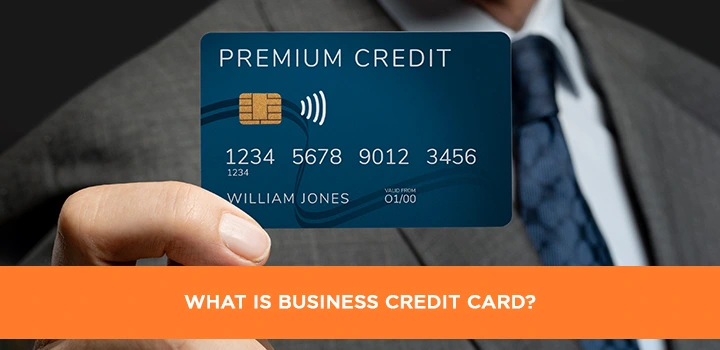
A company credit card is among the most valuable financial instruments you have as an entrepreneur or owner of a business. But specifically what is a corporate credit card and how does it function? We will explore the realm of business credit cards in this blog, covering their advantages and key characteristics as well as providing advice on which one best meets your company's requirements. Long-term success depends on knowing the nuances of business credit cards, regardless of your current size or desire to grow your current company. Let us start right now.
1. A business credit card is designed specifically for business owners and offers unique benefits suited to businesses.
One useful financial instrument especially for company owners is a business credit card. Apart from personal usage, one of the special advantages of credit cards is their features and benefits that meet the particular demands of a company. They provide a neat record of all transactions and a smooth approach to creating and monitoring company spending. Moreover, corporate credit cards have bigger credit limits that would help a company to control its costs. Essential in ensuring future funding for your company, they assist in creating corporate credit and financial reputation. Using a company credit card helps even startups and small companies control their costs and simplify their accounts.
2. The primary purpose of a business credit card is to provide businesses with a means of making and tracking business expenses.
Specifically designed to meet the special demands of company owners, business credit cards Their main goals are to provide companies with easily available tools for monitoring and generating company costs. Features of business credit cards set them apart from personal credit cards. They let companies quickly monitor their spending, therefore improving the accuracy of cost reporting. Company credit cards have more thorough reports than personal credit cards, which greatly streamlines the process of handling company costs for owners. Furthermore, because they enable a company to develop its credit score, business credit cards may be a very important instrument for creating and proving financial credibility for companies. Using a company credit card helps even small companies and startups trying to become well-known in the market to simplify their costs and allow easy monitoring.
3. Unlike personal credit cards, business credit cards take into account both personal income and business revenue when determining credit limits.
Regarding credit limitations, business credit cards play a different game entirely. Unlike personal credit cards, corporate credit cards consider company income as well as personal income in deciding the credit limit. company owners could therefore have a larger credit limit with a company credit card than with a personal credit card. Including business income into the credit limit computation helps banks to more fairly depict a company's credit capacity. Furthermore, this kind of computation lets company owners have easier access to money for operations connected to their businesses. company credit cards should only be used for purchases and costs connected to the company, nevertheless, as noted. Even for tiny companies and startups, using a business credit card may help companies establish financial credibility and develop credit overall.
4. Business credit cards can help businesses build credit and establish financial credibility.
Business credit cards enable organizations to establish financial credibility and create credit in addition to giving them access to a line of credit. Businesses may raise their credit ratings and raise their chances of loan or line of credit approval by regularly making on-time payments and appropriately managing spending. Early on establishing a credit profile via a company credit card can help even startups and small firms. Separating corporate credit cards from personal credit cards also helps companies maintain their finances in order and streamline accounting procedures. All things considered, companies trying to raise their financial situation and expand would find great use for a business credit card.
5. Even small businesses and startups can benefit from using a business credit card.
Using a business credit card can help startups and small companies. These cards manage company costs effectively, handle unforeseen expenses, and provide quick access to a revolving line of credit with a defined amount to fund short-term purchases, Furthermore, responsible use of a business credit card will assist small firms develop credit, therefore improving their financial reputation and prospects of long-term qualifying for bigger loans and better conditions. Using a business credit card can isolate personal responsibilities from their company liabilities and reduce legal liability risk for personal assets even if a small business owner has a good personal credit history. Therefore, using a business credit card may assist startups and small companies in lowering financial risks while getting several benefits such as airline miles, lowered interest rates, and cash-back incentives.
Conclusion
All things considered, a business credit card is a great instrument for any owner of a company. It provides special advantages meant for companies like greater incentives, improved deals, and bigger credit limits. Businesses may quickly create and monitor spending, develop credit, and project financial confidence by utilizing a company credit card. These advantages are available even to startups and small companies. Though corporate credit cards offer somewhat higher interest rates than conventional loans, the ease and benefits far exceed any extra expenses. Consequently, companies should give utilizing a company credit card top importance while developing their financial plan.
Resource
How To Remove Inquiries From Credit Report
Paying off collections is work to improve credit score?
How to remove collections from credit report